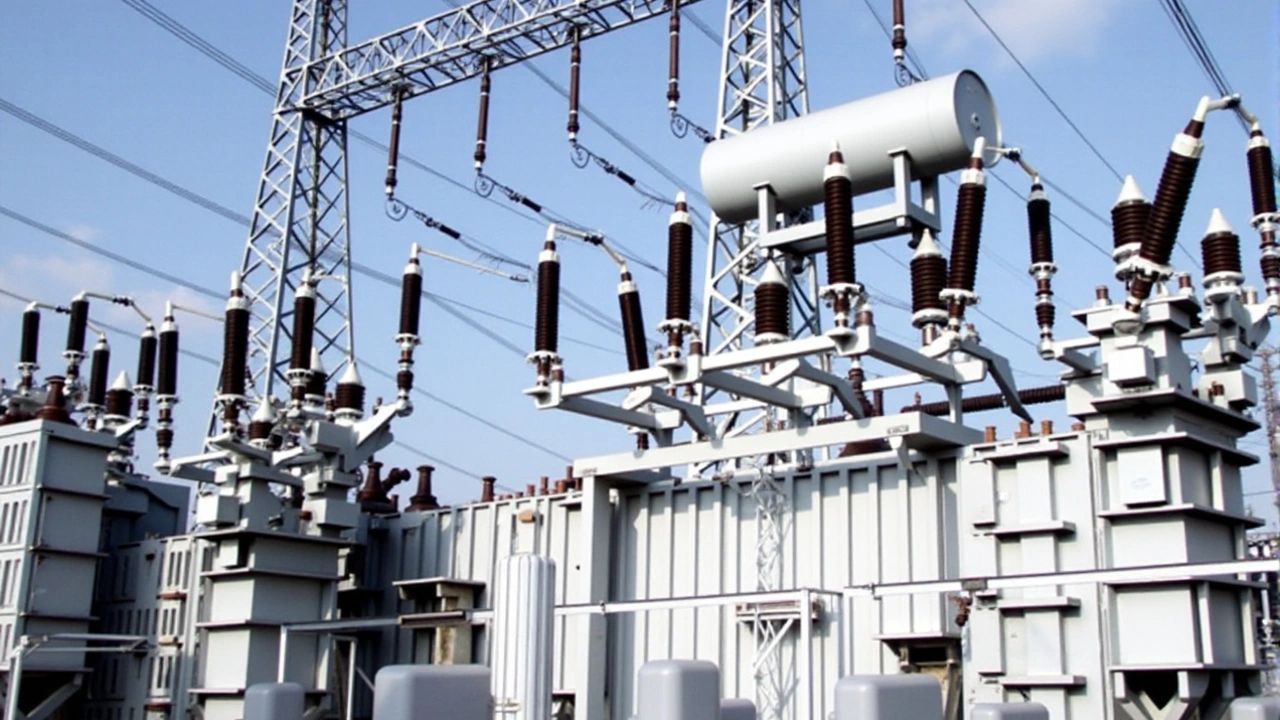Nigeria Faces Repeated National Grid Failures: Understanding the Causes and Impacts

Nigeria's National Grid Crisis: A Recurring Nightmare
As Nigeria grapples with yet another collapse of its national power grid, an unsettling reality unfolds for the millions of residents who depend on stable electricity for daily life. The power outage early on Saturday morning marked the third incident within a week, sparking widespread concern and frustration among citizens and officials alike. At precisely 8:16 AM, the grid's failure began a downward spiral that saw power generation numbers drop from 3,042 megawatts just a few minutes earlier to a mere 47MW by 9 AM. This catastrophic event underscores deeper, systemic issues within Nigeria's electricity infrastructure that cannot be ignored. With power allocations to distribution companies dwindling to 0.00MW, the incident left many in the dark, quite literally.
The Immediate Aftermath
The immediate cause of the latest outage is attributed to a transformer explosion at the Jebba transmission station—a critical node in the nation's power supply chain. As authorities from the Nigerian Electricity Regulatory Commission (NERC) scrambled to understand the sequence of events, preliminary reports confirmed this mechanical failure as the flashpoint of Saturday's blackout. Yet, the disturbing frequency of these collapses hints at a more complex tapestry of challenges plaguing the national grid. Each outage not only disrupts the electrical supply but also erodes public trust in governmental capacity to provide essential services.
Restoration Efforts in Motion
Efforts to remedy the outage began swiftly, with NERC spearheading initiatives to address the immediate fallout. By 1 PM, substantial progress was reported, with power gradually being restored to 33 states and the Federal Capital Territory (FCT). This effort required coordinated action among electricity transmission and distribution stakeholders, reinforcing the need for cooperation across the sector. Despite these efforts, the recurrence of outages highlights the urgent need for lasting reforms and investments in infrastructure to preempt future disturbances.
An Inquiry into Sustained Failures
NERC has voiced serious concerns regarding the increasing regularity of grid collapses, prompting plans for a comprehensive investigation. The aim is to identify the operational and systemic weaknesses contributing to this crisis. Understanding these underlying issues is critical to devising effective, long-term solutions to bolster grid resilience and to fulfill Nigeria’s growing energy demands. In addition to addressing the technical aspects, reform must consider strategic infrastructural improvements, regulatory changes, and enhanced maintenance practices to assure a reliable energy supply.
The Broader Impact on Development
The implications of a dysfunctional power grid extend beyond mere inconveniences. They strangle economic growth, curtail business operations, and hinder the daily lives of citizens. In a country with burgeoning development needs and economic potential, electricity is the lifeblood of progress. Each blackout stalls production lines, disrupts commerce, and hinders education and healthcare services that are increasingly reliant on digital technologies. This is why a functional and reliable electricity supply is vital, not just for the economy but for improving quality of life and securing Nigeria’s future prosperity.
Looking Ahead: A Path Forward
Solving the crises embedded within Nigeria’s electricity framework requires more than stopgap measures. It calls for visionary leadership, strategic investments, and comprehensive policy overhaul. As the nation grapples with the immediate challenges posed by the latest blackout, there is a simultaneous need to nurture long-term stability through sustainable practices and innovation. This may involve tapping into renewable energy sources, enhancing grid technology, and adopting more effective regulatory measures to ensure reliable, future-proof power supplies for all Nigerians.
The Nigerian government, along with private stakeholders, must channel their efforts into not just resurrecting the current system, but reimagining it for a stable and prosperous future. As Nigerians endure another moment in the dark, their hopes are pinned on a brighter, more reliable energy landscape driven by progress and informed by the lessons of past failures.

Michael Klamm
October 19, 2024 AT 23:34Shirley Kaufman
October 20, 2024 AT 11:11William H
October 21, 2024 AT 00:19Katelyn Tamilio
October 21, 2024 AT 12:05christian lassen
October 22, 2024 AT 05:06